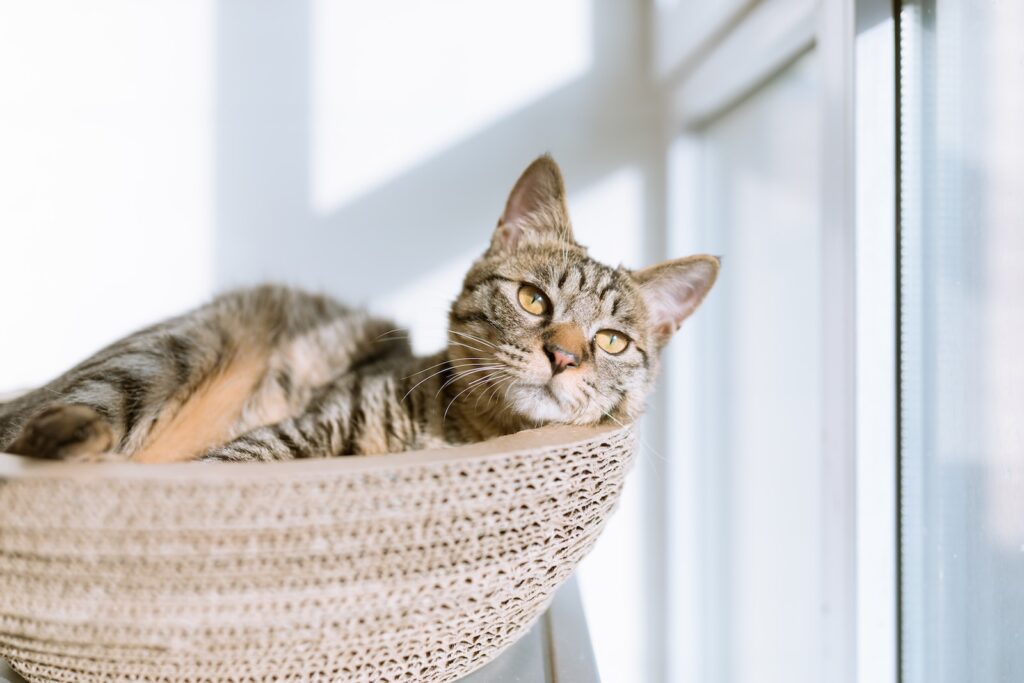Can Cats Eat Corn? — Yes, They Can
Cats can safely consume corn as part of their diet. However, it is important to note that corn should only be served in moderation and as a supplementary treat, not as a staple food. While corn is not toxic to cats, it does not provide significant nutritional value to meet their dietary requirements.
Can Kittens Eat Corn?
Yes, kittens can eat corn, but it should be introduced gradually and in small amounts. As their digestive systems are still developing, kittens may have difficulty digesting corn properly. It is essential to ensure that corn is cooked thoroughly and served in a mashed or pureed form to make it easier for kittens to consume and digest.
Things to consider when feeding corn to kittens?
When feeding corn to kittens, it is crucial to monitor their digestion and overall health. If you notice any signs of discomfort, such as diarrhea or vomiting, it is best to consult with a veterinarian to ensure that corn is suitable for your kitten’s specific dietary needs.
Nutritional Benefits of Corn for Cats — Why Corn is Good for Cats?
1. Fiber-Rich
Corn is a good source of dietary fiber, which aids in digestion and helps prevent constipation in cats. Including a small amount of corn in their diet can promote healthy bowel movements.
2. Energy Source
Corn contains carbohydrates that provide cats with energy. While protein is the primary source of energy for cats, small amounts of corn can contribute to their overall energy levels.
3. Antioxidants
Corn contains antioxidants, such as beta-carotene and lutein, which play a role in maintaining a cat’s eye health and supporting their immune system.
4. Hydration
Canned corn or fresh corn kernels can help hydrate cats, especially if they are not consuming enough water. The high water content in corn can contribute to their overall hydration levels.
5. Source of Vitamins
Corn contains vitamins such as vitamin C, vitamin E, and various B vitamins, which can contribute to the overall nutritional intake of cats.
Potential Allergies: Can Cats Be Allergic to Corn?
While rare, some cats may have allergic reactions to corn. Allergies can manifest as skin irritations, gastrointestinal upset, or respiratory issues. If you notice any signs of an allergic reaction, it is best to consult with a veterinarian to determine the cause and avoid feeding corn to your cat.
Symptoms of Corn Allergies in Cats
- Itching and skin rashes
- Vomiting or diarrhea
- Difficulty breathing or wheezing
What to Do If Your Cat Shows Symptoms?
- Consult with a veterinarian to determine the cause of the allergic reaction.
- Follow the veterinarian’s recommendations for allergy management.
- Eliminate corn from your cat’s diet and monitor for improvements.
Recommended Amount: How Much Corn Can a Cat Consume?
Corn should only be given to cats in small portions as an occasional treat. It should not exceed 5–10% of their daily caloric intake. It is essential to consider corn as a supplementary food and not a staple in their diet.
Things to Consider When Feeding Corn to Cats
When feeding corn to cats, ensure that it is cooked thoroughly and served without any added seasonings or salt. Corn on the cob should be avoided due to the risk of choking or intestinal blockage. Monitor your cat’s overall health and digestion to ensure that corn is well-tolerated.
How to Feed Corn to Cats: A Quick Guide
Introducing corn to your cat’s diet can be a delightful and occasional treat. Here are a few recipes you can try:
Corn Mash
1. Cook fresh corn kernels until soft.2. Mash the cooked corn with a fork or blend it until smooth.3. Serve a small portion as a treat, ensuring it is at room temperature.
Corn and Tuna Mix
1. Drain canned sweet corn.2. Mix the corn with a small amount of canned tuna for added flavor.3. Serve a small portion as a treat, making sure the ingredients are well-mixed.
Corn and Chicken Broth
1. Boil fresh corn kernels until soft.2. Drain the cooked corn and retain the broth.3. Allow the corn to cool and serve with a small amount of chicken broth.4. Serve a small portion as a treat, ensuring it is at room temperature.
Conclusion
In conclusion, cats can safely eat corn as an occasional treat, but it should not be a significant part of their diet. While corn provides some nutritional benefits, it is crucial to feed it in moderation and monitor your cat’s overall health and digestion. If you are unsure about introducing corn to your cat’s diet, consult with a veterinarian for personalized guidance.






